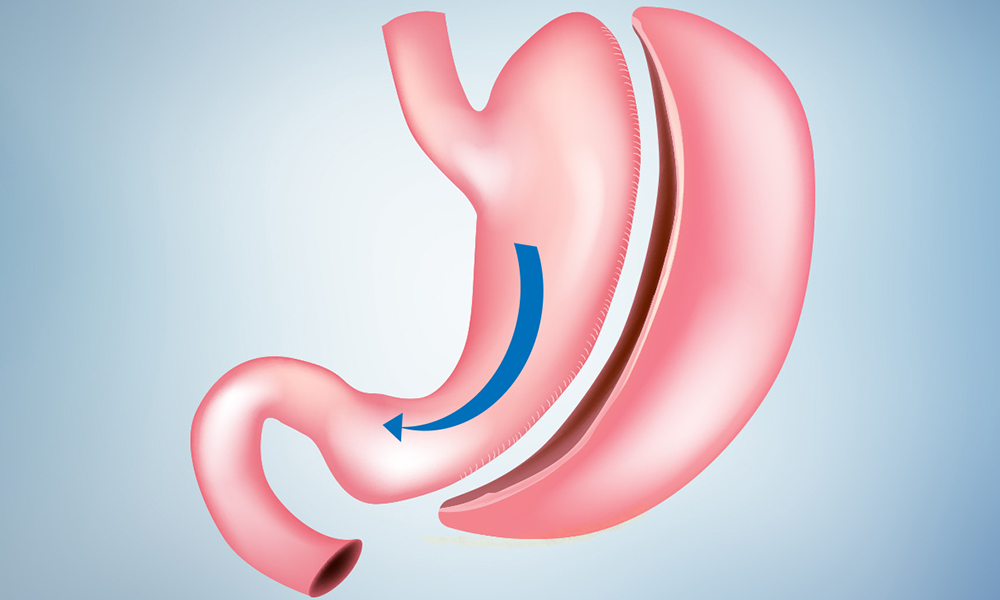
Sleeve Gastrectomy: An Effective Weight Loss Solution for Morbid Obesity
What is Sleeve Gastrectomy?
Sleeve gastrectomy is a bariatric surgery procedure that involves removing a large portion of the stomach to create a small, banana-shaped sleeve. The procedure is performed laparoscopically and is designed to promote weight loss by limiting the amount of food the stomach can hold and reducing hunger hormones. Sleeve gastrectomy has become one of the most popular bariatric surgeries due to its effectiveness in promoting long-term weight loss and improvement in obesity-related health conditions.
Who is a Candidate for Sleeve Gastrectomy?
Sleeve gastrectomy is usually recommended for individuals with morbid obesity, who have a body mass index (BMI) of 40 or higher, or a BMI of 35 or higher with obesity-related health problems. The procedure is also recommended for individuals who have not been successful with non-surgical weight loss methods, such as diet and exercise, or who have tried and failed with other weight loss surgeries.
Procedure
How is Sleeve Gastrectomy Performed?
Sleeve gastrectomy is performed under general anesthesia and typically takes one to two hours to complete. The procedure is performed laparoscopically, which means that several small incisions are made instead of one large incision. The surgeon removes a large portion of the stomach, leaving behind a small banana-shaped sleeve that is approximately the size of a banana. The remaining portion of the stomach is then permanently closed, so that it cannot expand to hold more food.
Recovery and Aftercare
After the procedure, patients usually stay in the hospital for one to two days, during which time they will be monitored for any complications. They will need to follow a strict liquid diet for the first two weeks after surgery, gradually transitioning to solid foods as they heal. Most patients can return to their normal activities within two to four weeks after the procedure.
Benefits
Weight Loss
One of the primary benefits of sleeve gastrectomy is weight loss. The procedure has been found to be effective in promoting long-term weight loss in patients with morbid obesity. On average, patients can expect to lose 50-60% of their excess weight within the first two years after the procedure.
Improvement in Obesity-Related Health Conditions
In addition to promoting weight loss, sleeve gastrectomy has also been found to result in significant improvement or resolution of obesity-related health conditions such as type 2 diabetes, high blood pressure, sleep apnea, and others. These improvements can have a significant impact on a person’s quality of life and overall health.
Potential Risks and Complications
Risks Associated with Surgery
Like any surgery, sleeve gastrectomy carries certain risks, including bleeding, infection, and blood clots. Additionally, there is a risk of staple line leaks, stomach obstruction, and changes in the way food moves through the digestive system.
Long-Term Risks
There is also the possibility of long-term complications, such as vitamin and mineral deficiencies, and the need for revision surgery. It is important to discuss the potential benefits and risks of the procedure with a qualified bariatric surgeon to ensure that you fully understand the risks and benefits involved.
Post-Surgery Lifestyle Changes
It is also important to note that sleeve gastrectomy requires a significant commitment to lifestyle changes, such as adopting a healthy diet and engaging in regular physical activity. Patients must be willing to make these changes in order to achieve the best possible outcomes.
Conclusion
An Effective Solution for Morbid Obesity
Sleeve gastrectomy is a promising weight loss solution for patients with morbid obesity, who have not been successful with non-surgical weight loss methods. It is important to discuss the potential benefits and risks of the procedure with a qualified bariatric surgeon to determine if it is the right option for you. Additionally, it is important to understand that sleeve gastrectomy is only one aspect of a comprehensive weight loss plan and that making lasting lifestyle changes is critical to achieving and maintaining weight loss success.
Frequently Asked Questions About Sleeve Gastrectomy
What can I expect during the recovery period after sleeve gastrectomy?
After the procedure, patients usually stay in the hospital for one to two days. They will need to follow a strict liquid diet for the first two weeks, gradually transitioning to solid foods as they heal. Most patients can return to their normal activities within two to four weeks after the procedure.
Are there any long-term risks associated with sleeve gastrectomy?
Like any surgery, sleeve gastrectomy carries certain risks, including bleeding, infection, and blood clots. Additionally, there is a risk of staple line leaks, stomach obstruction, and changes in the way food moves through the digestive system. Long-term complications, such as vitamin and mineral deficiencies, and the need for revision surgery may also occur. It is important to discuss the potential benefits and risks of the procedure with a qualified bariatric surgeon to ensure that you fully understand the risks and benefits involved.
How much weight can I expect to lose with sleeve gastrectomy?
The amount of weight loss achieved with sleeve gastrectomy can vary from person to person, but most patients can expect to lose 50-60% of their excess weight within the first two years after the procedure. It is important to note that weight loss success also depends on making lifestyle changes, such as adopting a healthy diet and engaging in regular physical activity.
Is sleeve gastrectomy reversible?
The sleeve gastrectomy is an operation that is irreversible and therefore permanent. This is because a large portion of the stomach is removed during the procedure. Patients who are considering sleeve gastrectomy should be prepared to make a long-term commitment to a healthier lifestyle.
Is there a difference between sleeve gastrectomy and gastric bypass?
Sleeve gastrectomy and gastric bypass are both bariatric surgery procedures designed to promote weight loss, but they work differently. Sleeve gastrectomy involves removing a large portion of the stomach to limit the amount of food the stomach can hold, while gastric bypass involves rerouting the digestive system to bypass a portion of the stomach and small intestine. Patients should discuss the pros and cons of each procedure with their bariatric surgeon to determine which one is right for them.
What are the benefits of sleeve gastrectomy?
Sleeve gastrectomy offers a number of benefits, including promoting weight loss, improving obesity-related health problems, such as type 2 diabetes and high blood pressure, and increasing overall quality of life. Additionally, sleeve gastrectomy is a less invasive procedure than other bariatric surgery options, with a shorter recovery time and lower risk of complications. Patients who are considering sleeve gastrectomy should discuss the potential benefits and risks of the procedure with a qualified bariatric surgeon.
Contact Us for More Information
If you are considering sleeve gastrectomy for weight loss, İbrahim Ağaçkıran invites you to contact us to schedule a consultation. Our team of experienced bariatric surgeons will be happy to answer any questions you have and help you determine if sleeve gastrectomy is right for you.
Don’t wait to take the first step towards a healthier, happier you. Contact us today to learn more about sleeve gastrectomy and how it can help you achieve your weight loss goals.













I had tube stomach surgery to my teacher İbrahim. I was very nervous before the surgery. The teacher explains everything in great detail. I didn't have any pain except for the first few hours after the surgery. I feel very good now. Thank you very much to my teacher and his team. I would recommend it to everyone.
Hi Ibrahim Elif beceremed from Aksaray to be weak after many years until they met our teacher today I follow my 3 day agackiran fortunately our teacher friendly operation evimdeyim positive energy once you get to know and I regret it I wish I didn't know what fear is before you panic if I was my suggestion to everyone is our teacher closed his eyes forget about everything gelinkimse Ibrahim's smile makes all the guarantees which I thank very much for everything you people must be happy happy like I've known pain make sure you thank God for each valuable sehirde
Hi, I tried everything for the sake of slimming years and now stomach surgery but I didn't get the result but I was too scared I'd decided to have a teacher Ibrahim afterwards, I found there was around me afterwards, I went to see her surgery in patients with and for the first time I saw a doctor speaks so loud and clear. i had surgery 2 days ago and everything is very nice now and I am standing up, I have started my walks. Thank you very much to my teacher and his team, if you have such an opinion without the slightest hesitation, I would say meet with Ibrahim teacher without wasting time, you will never regret it...
He is the sweetest, most smiling, most affectionate, most sincere and such a successful doctor I have ever seen in my life. I felt not like I was visiting a doctor, but like I was visiting someone from my family. I couldn't even go to the preliminary interview because I was afraid for years, my teacher convinced me in 10 minutes for obesity surgery. I had surgery about a week ago, I'm taking good care of my two children right now, and I've even been able to return to my job, I'm glad that you exist, Ibrahim teacher, I love you very much.